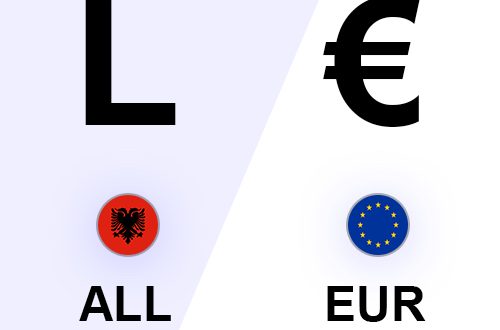Albania’s Currency Paradox: Strong Lek Brings Bargains, But Exporters Feel the Squeeze
By S.Xh-Special Correspondent
July 4, 2025
Albania is experiencing a unique economic moment: while the euro is surging on the global stage, it’s losing ground against the Albanian lek at home. This currency paradox is reshaping the country’s business landscape, creating both winners and losers across key sectors.
Euro Soars Globally, Sinks Locally
As of July 2025, the euro has reached its highest value in four years against the US dollar and other major currencies. The EUR/USD exchange rate hovers around 1.18, with some experts predicting it could climb even higher. This global rally is fueled by a weakened US dollar, renewed confidence in the eurozone economy, and the European Central Bank’s success in taming inflation.
But in Albania, the story is different. The euro has steadily weakened against the lek, now trading at just 98 ALL—down significantly from previous years. This trend is driven by a flood of euro inflows from tourism, remittances, and foreign investment, which has strengthened the local currency.
Winners: Importers, Investors, and Consumers
For Albanian importers and consumers, the strong lek is a blessing. Goods and services from the eurozone are now more affordable, helping businesses control costs and giving shoppers more bang for their buck. Lower import prices have also helped keep inflation in check, preserving the purchasing power of ordinary Albanians.
Foreign investors are also taking note. Sectors like real estate, tourism infrastructure, and renewable energy are seeing a surge in interest, with property values rising and major projects breaking ground. Business-friendly reforms and government incentives are further fueling this investment boom.
Losers: Exporters and Euro-Earners
Not everyone is celebrating. Albanian exporters, particularly in textiles, footwear, and agriculture, are feeling the pinch. Their euro-denominated earnings now convert to fewer leks, squeezing profit margins and making Albanian products less competitive in European markets. Some businesses are already reporting revenue declines as a result.
Families and businesses that rely on remittances from abroad are also affected. With the euro worth less in lek terms, the money sent home by relatives doesn’t stretch as far as it used to. Even the booming tourism sector faces a twist: while more tourists are visiting, the value of their euro spending is diminished when converted to leks.
Navigating the New Normal
Despite these challenges, Albania’s economy remains on a positive trajectory, with growth expected to reach nearly 3.7% this year. The key for businesses will be to adapt: importers and investors are well-positioned to thrive, while exporters and euro-earners may need to rethink strategies, hedge currency risks, or focus on value-added products.
In summary:
Albania’s strong lek is a double-edged sword—delivering bargains for consumers and opportunities for investors, but posing real challenges for exporters and those reliant on euro income. As the currency story unfolds, the country’s business leaders will need to stay nimble to make the most of this new economic reality.
For more business insights and updates, stay with us at ABCCI.
 Albanian British Chamber of Commerce and Industry ABCCI
Albanian British Chamber of Commerce and Industry ABCCI



